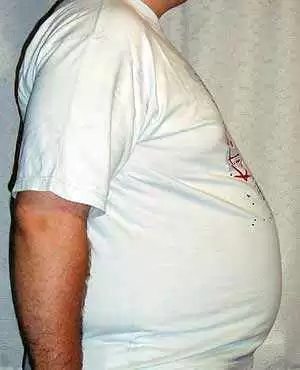Celiac.com 05/09/2012 - Weight loss is traditionally regarded as one of the classic symptoms of celiac disease. Recent studies suggest that people with celiac disease are far more likely to be obese than underweight at the time of presentation.
 A research team recently set out to assess the frequency of obesity in newly diagnosed celiac disease.
A research team recently set out to assess the frequency of obesity in newly diagnosed celiac disease.
Celiac.com Sponsor (A12):
The research team included Elizabeth Tucker, Kamran Rostami, Sudhakaran Prabhakaran, and Daivid Al Dulaimi. They are affiliated variously with the Institute of Health and Society of Worcester University, School of Clinical and Experimental Medicine in Worcester, the University of Birmingham, and the department of Gastroenterology at Alexandra Hospital in Redditch, in the United Kingdom.
The research team wanted to assess the frequency of obesity in newly diagnosed celiac disease.
To do so, they reviewed dietetic records and patient demographic of people with celiac disease, along with initial assessment date, and Body Mass Index (BMI) recorded and statistically analyzed.
In all, they reviewed data for 187 celiac disease patients diagnosed between 1999 and 2009. Of those, 127 patients were female (68%) and 60 male (32%), a ratio of 2 to 1.
Patients ranged in age from 18 to 87 years of age, with an average age of 54 years.
BMI inter-quartile range (IQR) ran from 21.5 to 28.1, with an average BMI of 23.6. IQR was 21.8 to 27.3 for men, with an average BMI of 23.9.
For females, the BMI IQR ran from 21.4 to 28.6, with an average of 23.2. Overall, 83 patients (44%) registered a BMI of 25 or above.
The team found no significant difference gender, age or year of referral among patients with a BMI of 25 or above.
Twenty-five patients (13 %) had a BMI of 30 or above. Of those, twenty were female, and ranged in age from 18 to 71 years old, with an average age of 56 years.
In all, 11% of females registered a BMI of 30 or more, compared with only 3% males, a 5 to 1 ratio. Only 5 patients (3%) had a BMI below 18.5.
They found that nearly half of those diagnosed with celiac disease registered with a BMI of 25 or over. Compared to males, females showed a wider range of BMI and were more likely to be obese, registering a BMI of 30 or more.
Source:
- Open Original Shared Link









Recommended Comments